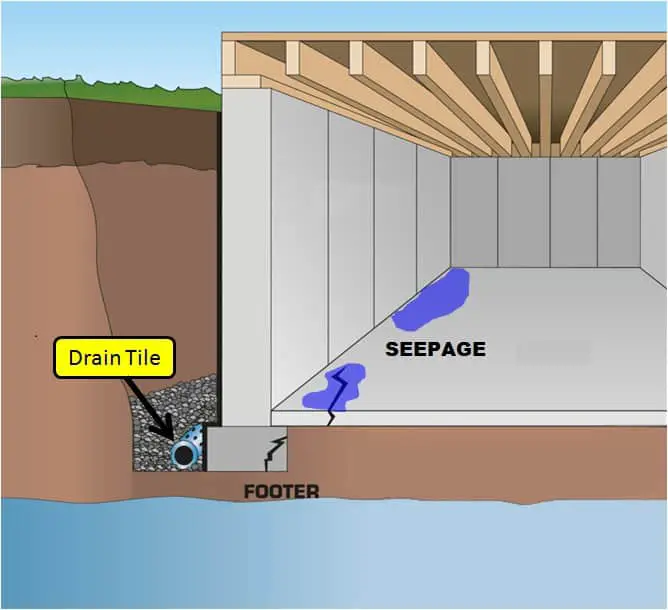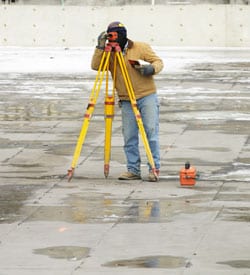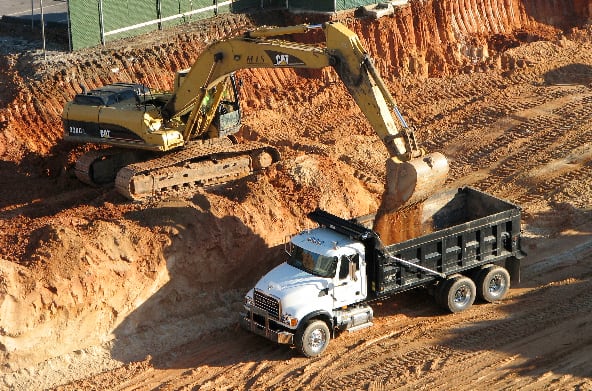When constructing a foundation for a building, it is generally best to have a professional come in and do most of the work. There are some skilled do-it-yourselves out there, though, who can properly build a foundation for a small outbuilding. A civil engineer must to know the details of foundation construction as it’s the basic work that is required for almost every construction project. The basic knowledge on building foundation construction process can help a homeowner to understand the phase of construction. It requires specific steps to ensure that the footings will hold the weight of the building through the test of time.
Step By Step Guide For Building Foundation Construction
Building foundations are provided to carry the load of the structure and then to distribute the load to the soil in larger cross sectional area. The foundation must be able to withstand the load of the structure including live loads and environmental factors. A safety factor is provided for safety during foundation design. The foundation is constructed according to the design. Here are 10 steps that are generally followed during building foundation construction. The following steps are provided for a general idea. These are not fixed steps and steps can be varied many ways during practical implementation depending on the construction project.
#1 Survey and Stake Out Footprint
This step is generally completed by a professional surveyor who will come out and determine the appropriate distances from the property lines. This ensures that the building will start out correctly and to code. The corners of the building will be marked using surveyor’s stakes. Then the surveyor will place offset stakes about two feet out from the surveyor’s stakes. The digging for the foundation will be done using the offset stakes as the guides. This allows for extra room so the exterior foundation walls can be worked on.
#2 Excavation
A structural engineer will be needed to determine the depth of the excavation. All surface soil needs to be removed to expose the soil that is compacted enough to bear the weight of the building. The depth will vary per building. The top of the footing must be below the frost line as this prevents the concrete from cracking when the freeze-thaw cycle occurs in the soil surrounding the building.
#3 Footings

A footing is a poured concrete pathway that is used to spread the weight of the building from the foundation walls to the soil. They are wider than the foundation walls that they are supporting and form the perimeter of the building. In some instances, there are additional footings added inside the perimeter to support load-bearing walls.
#4 Sub Slab:
Generally, plumbing lines are run from the street to the building’s basement by going over or even under the footing. This is even the case for buildings that have their own individual sewage facility or drain field. These lines are covered with a poured concrete slab.
#5 Foundation Drainage System

Subsurface water is collected and moved away from the foundation to prevent pooling water or flooding. The foundation drainage tile is made up of an uninterrupted run of punched drainage pipes that have been embedded in gravel along the foundation of the building. In some regions a sump pump may also be required to help collect the subsurface water.
#6 Walls
Foundation walls are poured concrete. They are poured using sets of forms that support the freshly poured concrete along with the appropriate bracings and hardware. Once the concrete walls are set and have achieved full strength, the form work is then removed. The thickness of the foundation walls will be determined by a structural engineer. The engineer will determine the thickness of the wall by calculating the height of the wall and the load that the wall has to bear.
#7 Anchor Bolts and Beam Pockets
Foundation walls need anchor bolts to secure the framing of the foundation. Anchor bolts are embedded in the concrete at pre-determined points along the top of foundation walls. The structural engineer will have already determined where the anchor bolts need to be prior to the walls being poured. Beam Pockets are embedded in the top of foundation walls as well. Their purpose is to receive, support and hold beams in place.
#8 Waterproofing
A waterproofing sealant is applied to all of the exterior foundation walls that are below-grade. This is why the excavation of the foundation left room beyond the perimeter of the actual foundation. The sealant helps to stop water from coming in through the walls and into the building’s basement.
#9 Slab
A three to four inch thick concrete slab is poured between the foundation walls. This will help stabilize the base of the walls.
#10 Backfill Soil
Once the foundation is completed and the waterproofing seal is dry, backfill is pushed into the trenches around the foundation walls on the exterior. Some will backfill a third of the way with gravel and then top it will soil that drains easily. Backfill provides stability to the building’s foundation.



good work